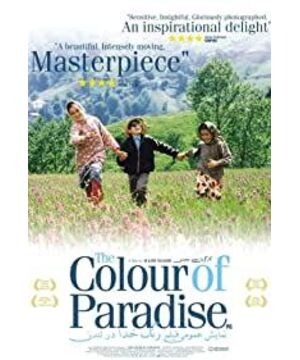Compared with the Iranian film "Nader and Simin, A Parting", which recently won the Oscar for best foreign language film, "Colors of Heaven" rarely touches religion directly. There are several scenes. One is when Muhammad's father was arguing with his grandmother, and the father asked his grandmother, "Who will take care of me when I am old and frail? Why didn't your omnipotent God come to help me get rid of this. Dilemma?” Then Muhammad’s conversation with the blind carpenter, Muhammad cried, “Our teacher said that God loves blind people more because they can’t see. But I told him that if God really loves us, he won’t let us Blind so that we can't see him. The teacher replied, God is invisible, he is everywhere, and you can feel him." Then the grandmother died, her face glorified by the light of heaven. In the end, Muhammad was dead, but the light of heaven shone in his hands. Here are a few scenes in the film that involve God, but I don't think it's very religious. Rather, it is beyond religion, it speaks directly to God, the Creator of all things. In other words, religion is subordinate to human beings, while God is omnipresent and all-encompassing, and God is present in the beauty of life and the beauty of nature. Therefore, in the countryside we see in the film, we see Muhammad, grandma, and sister. These beautiful landscapes and hearts are not bound by religion and exude the beauty of innocence. God is not a god of religion, but a god of nature, a god of all things.
The reason why I say this is also inspired by "A Farewell". "A Farewell" sings praises to religion, it's not unflattering. In it, people show extraordinary honesty because of religion, and religion also directly dominates people's thoughts and behaviors all the time. Religion here is completely secular, it has nothing to do with Allah, life and nature, it is a human organization that controls society. In my opinion, the film has no aesthetic aspirations, it's just a botched ode to religion and politics. That's why we see that even the rudimentary and almost absurd judicial process has a certain charm in the film because of religion.
View more about The Color of Paradise reviews









